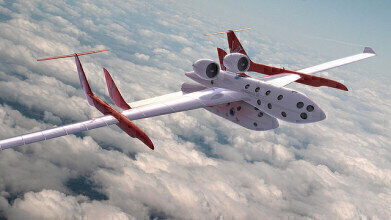News & Views
When Will Civilian Space Travel Be a Reality?
May 11 2016
Richard Branson’s ‘Virgin’ brand is nothing short of a global empire. His airline has conquered the skies, and now he’s taking his legacy to outer space. Under a brand called Virgin Galactic, Branson will launch VSS Unity, a next generation SpaceShipTwo craft that plans to pioneer the concept of space tourism.
The idea first came to light in 2010, when Virgin Galactic started retailing inaugural ‘space tourism’ tickets for a fifth of a million dollars. Advertised as a rocket plane, the ticket bought passengers a seven-minute ride into outer space. Six years later and the maiden voyage is still in the making, with tickets now selling for an eye watering $250,000. The company has now sold over 700 spots, yet take off has yet to materialise.
The dangers of space exploration
While VSS Unity is on the brink of launch, the company has endured its fair share of controversy to get to the finishing line. In 2014 Virgin Galactic lost VSS Enterprise, along with co-pilot Michael Alsbury.
Branson’s engineers have addressed major faults, yet the launch of Enterprise’s predecessor will still be powered by the WhiteKnightTwo carrier aircraft. Once carried into the sky VSS Unity will detach from the craft, and use a high powered rocket engine to transport its six passengers beyond the 100km Karman line. This marks the official boundary of space, where passengers will experience seven minutes of weightlessness.
Counting down to take off
So when will civilian space travel become a reality? While an initial 2012 estimate currently stands, Virgin Galactic hasn’t confirmed an exact date. Yet despite the ambiguity, ticket holders seem more than happy to wait. Just 3% of ticket holders requested a refund in the wake of the VSS enterprise disaster, with the remaining 97% staying categorically on-board.
Journalist Jim Clash, holder of ticket number 610 recalls, “I bought my ticket in early 2010, at the original price of $200,000.” While he’s keen to make the journey, he understands that “Rocket science is hard. While it's terrible we had the SpaceShipTwo accident in 2014 and lost co-pliot Michael Alsbury, that's why there is a rigorous testing phase in the first place.”
His comments echo the attitudes of the newly emerging space tourism industry, with both ticket holders, space scientists and members of the public alike maintaining that a rigorous experimental stage is critical. Virgin has also stressed that safety is paramount, releasing the following in a recent company statement.
“As a thousand-year-old saying goes, there is no easy way from the Earth to the stars… But finally, there is a way, and through steady testing, we will find it.”
The race is on...
Virgin may be making exceptional progress, but it’s not the only company forging the future of space tourism. Blue Origin and XCOR are also fierce competitors, with the former’s New Shepard carrier and the latter’s Lynx spacecraft both giving VSS Unity a run for its rocket.
When space tourism comes to light, passengers will likely have to undergo a meticulous pre-flight sterilisation process. For more information on the importance of destroying micro-organisms in any industry, ‘Did We Sterilise?’ is an in-depth and explanatory article.
Image via Flickr Creative Commons. Photo credits: Roderick Eime
Digital Edition
Lab Asia 31.2 April 2024
April 2024
In This Edition Chromatography Articles - Approaches to troubleshooting an SPE method for the analysis of oligonucleotides (pt i) - High-precision liquid flow processes demand full fluidic c...
View all digital editions
Events
Apr 25 2024 Istanbul, Turkey
Apr 28 2024 Montreal, Quebec, Canada
May 05 2024 Seville, Spain
InformEx Zone at CPhl North America
May 07 2024 Pennsylvania, PA, USA
May 14 2024 Oklahoma City, OK, USA


















